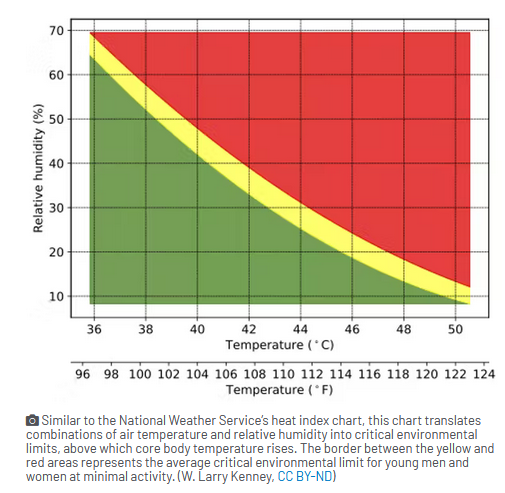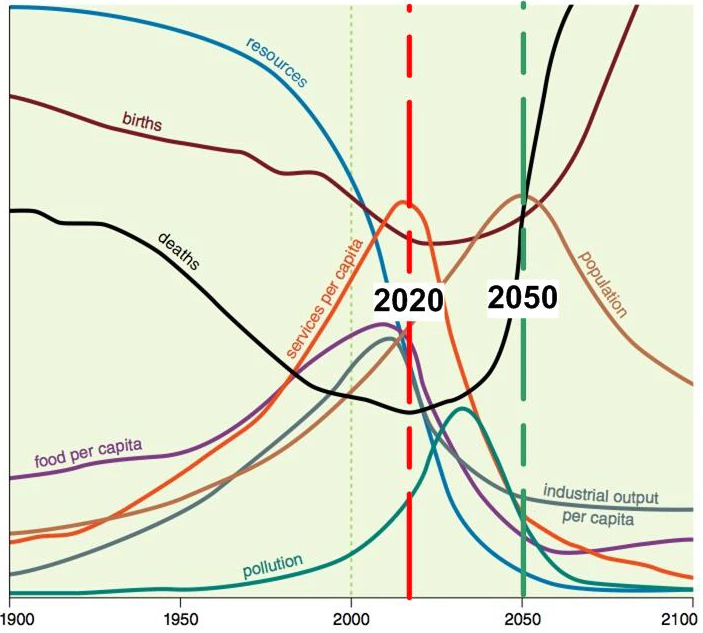Remember when you were a kid, and it was fun to tip your head back during a rainstorm and open your mouth to drink the drops? You shouldn’t do that anymore. That’s because you’ll be ingesting too many particles of Perfluoroalkyl and Polyfluoroalkyl Substances (PFAS), the hazardous chemicals that leach from the ultra-durable plastics we’ve created for about the past 120 years.
Earth is officially past its safe zone for plastic contamination. The PFAS “boundary has been exceeded,” according to a study published August 2 in the journal Environmental Science and Technology. PFAS are known to be hazardous to both the environment and human health. At this point, these “forever chemicals” are all over the globe and have seeded the atmosphere. Most importantly, they don’t break down in the environment.
This stuff can be removed from drinking water in various ways, but that doesn’t remove it from the environment. This also implies that drinking water from most, perhaps all, freshwater sources, is no longer safe. As a child in British Columbia and the Yukon in Canada, I often drank water from snow- and glacier-driven streams and rivers, but no longer.
The health effects of PFAS vary, but include reproductive, developmental, and immunological problems. Since PFAS don’t easily break down and can accumulate in the human body overtime, the more exposure a person has, the greater the chance of negative health effects. The EPA has cited evidence linking PFAS exposure to the following:
- increased cholesterol levels
- suppressed immune system
- thyroid hormone disruption
- liver and kidney damage
- low infant birth weight
- cancer
… PFAS can be removed from water through reverse osmosis, activated carbon filtration, and ion exchange.
Ah, joy.
This is separate from the issue of microplastics, which are now commonly found in blood and organs of humans and animals, and which some bacteria do feed on, though not enough to have a significant effect yet. (We can hope that evolution, natural or human-induced, will create more bacteria which eats plastic.)
Based on these type of studies, researchers have hypothesized that human exposure to microplastics could lead to oxidative stress, DNA damage, and inflammation — among other health problems. Particularly, when inflammation becomes chronic, this can pave the way to very serious health problems. However, it’s not only the plastic particles themselves that are potentially harmful: The microplastic surfaces in the environment are colonised by micro-organisms, some of which have been identified as human pathogens.
Human pathogens have a particularly strong bind to plastic waste, more so than to natural surfaces. Research published in 2016 identified the human pathogen Vibrio cholera, which causes cholera in humans, attached to microplastics sampled from the North and Baltic Seas.
Wonderful. I can’t find the original source, but I remember someone quipping:
“Born too late to explore the world, and too soon to roam the stars, but just in time to have microplastics in our blood.
Of course in many areas, rainwater is still too acidic to drink, so there’s that — though at least the horrible acid rain of my youth no longer plagues most of North America. We exported the industry which produces it to south-east China and various other manufacturing domiciles.
The fact of the matter is that human society is simply incapable of handling the power we’ve gained since the industrial revolution. Even when we know we’re doing massive harm, we don’t stop, or clean up, and we lie about it. In my youth, we moved from glass bottles for almost everything (including pop, as they were massively heavy) to plastic, and said “plastic can be recycled.” But most plastic isn’t recycled; only about eight percent ever has been and it’s not easy to recycle plastic because it has to be separated into different types first, since each type requires a different heat to be melted and reformed.
What’s happening, with climate, pathogens, plastic, and far more is classic “sorcerer’s apprentice” stuff: We have power we can’t control, and when we use it, we do harm.
This is why even if all the “best time ever to be alive” books and articles were right (a questionable assertion, but it is true for many people), they’re wrong in a larger sense — it’s like saying, “Man, I’m staying warm!” as you burn down your house. Once you’re finished burning your house, you’re screwed. Except what we’re burning down is the environment which keeps us healthy, fed, watered, and protected from temperatures too cold or hot to survive, as with the infamous point where it’s so hot the human body can’t cool itself.
People often point to a study published in 2010 that estimated that a wet-bulb temperature of 35 C – equal to 95 F at 100 percent humidity, or 115 F at 50 percent humidity – would be the upper limit of safety, beyond which the human body can no longer cool itself by evaporating sweat from the surface of the body to maintain a stable body core temperature…
…Our studies on young, healthy men and women show that this upper environmental limit is even lower than the theorized 35 C. It’s more like a wet-bulb temperature of 31 C (88 F). That would equal 31 C at 100 percent humidity, or 38 C (100 F) at 60 percent humidity.
This temperature has been hit over the last couple years in India.

It’s a brave new world, and our descendants, and, indeed, many people alive today are or will be cursing us — and with good reason.

